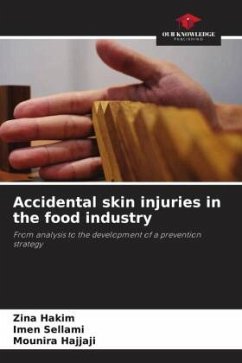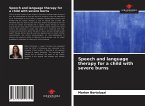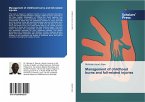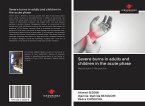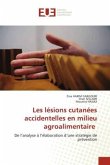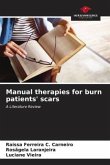Occupational accidents causing skin damage are frequent and underestimated, yet they can be disabling. Working in an industrial environment is particularly prone to this type of accident. The elaboration of an adequate prevention strategy necessarily requires a risk assessment through the analysis of occupational injuries. The aim of our study was to describe the particularities of skin injuries, to analyze them and to propose appropriate preventive actions. We conducted an exhaustive cross-sectional study of workers in a pastry company. The quantitative analysis of the injuries consisted of calculating the frequency rate, the frequency index and the severity rate, the main indicators of occupational injuries. The qualitative analysis was performed using the ADC cause tree method. The study included 47 employees with accidental injuries, with a mean age of 38.3±10 years, 72.3% of whom were engaged in manual work. Of a total of 52 skin injuries, 63.5% were of the "wound" type and 36.5% of the "burn" type, affecting the hands in 86.5%. A rigorous analysis will allow a targeted prevention of these accidents through technical and organizational measures.
Bitte wählen Sie Ihr Anliegen aus.
Rechnungen
Retourenschein anfordern
Bestellstatus
Storno

